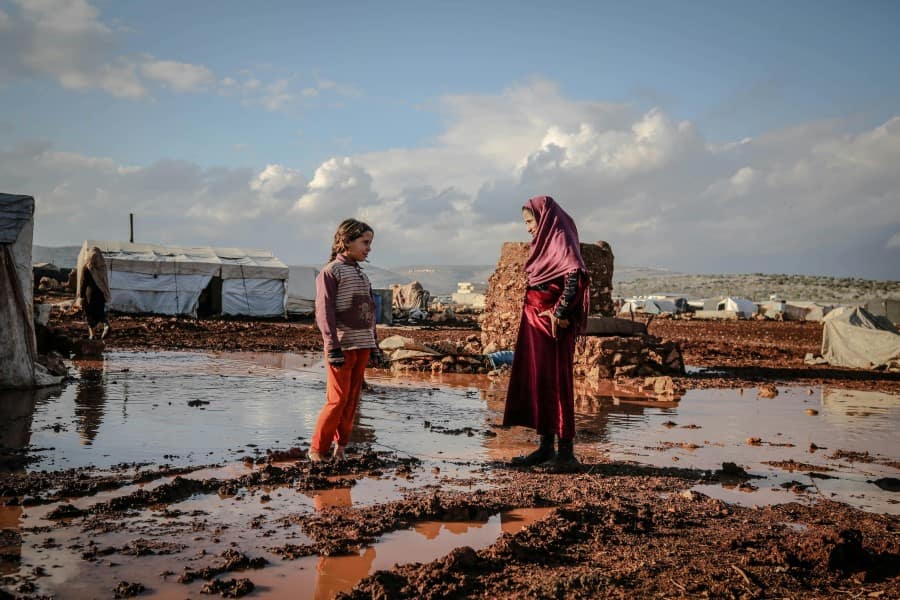14 Ways Gender Inequality Impacts Poverty

Among many other causes, gender inequality impacts poverty globally and is a pervasive issue that transcends geographical boundaries, cultures, and socio-economic statuses. It manifests in various forms, affecting women and men differently and contributing significantly to global poverty. Addressing gender inequality is not only a matter of social justice but also a crucial step towards sustainable development and poverty alleviation. This article explores 14 ways gender inequality impacts poverty and suggests potential solutions to mitigate these effects on a global scale.
1. Economic Participation and Opportunity
Impact
Women often face barriers to economic participation, including discrimination in hiring, wage gaps, and limited access to financial resources. This exclusion from the workforce or relegation to lower-paying jobs perpetuates poverty among women and their families.
Solution
Implementing policies that promote equal pay, affirmative action in hiring, and access to financial services can empower women economically. Encouraging female entrepreneurship through microfinance and business training programs can also help bridge the economic gap.
2. Education and Skill Development
Impact
Gender disparity in education, particularly in low-income countries, limits women’s opportunities for economic advancement. Girls often have lower enrollment and completion rates in schools due to cultural norms, early marriage, and lack of access to sanitary facilities.
Solution
Investing in girls’ education by providing scholarships, building gender-sensitive school infrastructure, and campaigning against early marriage can improve educational outcomes. Community awareness programs that emphasize the importance of girls’ education can also drive change.
3. Health and Well-being
Impact
Gender inequality in health manifests through limited access to healthcare services for women, higher maternal mortality rates, and a lack of reproductive health services. Poor health further entrenches poverty by reducing women’s ability to work and care for their families.
Solution
Ensuring universal access to quality healthcare, particularly reproductive health services, is essential. Governments and NGOs should prioritize maternal health programs, promote gender-sensitive health policies, and provide education on sexual and reproductive health rights.
4. Political Participation and Representation
Impact
Women’s underrepresentation in political and decision-making processes leads to policies that do not adequately address their needs and rights. This lack of representation perpetuates gender-biased governance and resource allocation, deepening poverty.
Solution
Promoting gender quotas in political representation and leadership positions can ensure that women’s voices are heard. Encouraging women’s political participation through leadership training and civic education programs is also crucial.
5. Violence and Security
Impact
Gender-based violence (GBV) is both a cause and consequence of gender inequality. It not only harms women physically and psychologically but also limits their economic and social participation, trapping them in cycles of poverty.
Solution
Strengthening legal frameworks to protect women from violence, improving law enforcement response, and providing support services for survivors are critical. Public awareness campaigns and education can help change societal attitudes towards GBV.
6. Property Rights and Land Ownership
Impact
Women often lack equal rights to own and inherit property, limiting their ability to generate income and secure financial stability. This legal and cultural discrimination contributes significantly to rural poverty, where land is a primary asset.
Solution
Legal reforms to ensure equal property and inheritance rights for women are necessary. Providing legal aid and support to women to claim their rights and promoting awareness about these rights can help address this issue.
7. Labor Market Segregation
Impact
Gender-based labor market segregation forces women into lower-paying and less secure jobs, often in the informal sector. This limits their economic mobility and perpetuates income inequality and poverty.
Solution
Encouraging gender diversity in all sectors through vocational training, mentorship programs, and inclusive hiring practices can help break down labor market segregation. Policies that support work-life balance, such as parental leave and flexible working hours, are also beneficial.
8. Social Norms and Cultural Practices
Impact
Deep-rooted social norms and cultural practices often dictate gender roles, limiting women’s opportunities for economic and social advancement. Practices such as early marriage, gender-biased education, and restrictive dress codes contribute to poverty.
Solution
Community-based programs that challenge and change discriminatory social norms are essential. Engaging men and boys as allies in promoting gender equality and empowering women through education and awareness can drive cultural change.
9. Access to Technology
Impact
The digital gender divide restricts women’s access to technology, which is increasingly important for education, business, and social connectivity. This technological exclusion exacerbates economic and social inequalities, contributing to poverty.
Solution
Promoting digital literacy and providing affordable access to technology for women and girls can bridge the digital divide. Supporting women in tech through scholarships, mentorship, and inclusive policies can also foster greater participation.
10. Work-Life Balance and Care Responsibilities
Impact
Women disproportionately bear the burden of unpaid care work, limiting their time and opportunities for paid employment. This imbalance contributes to economic disparities and poverty among women.
Solution
Implementing policies that promote shared caregiving responsibilities, such as paternity leave and affordable childcare services, can help. Raising awareness about the value of unpaid care work and advocating for its recognition in economic policies are also crucial steps.
11. Financial Inclusion
Impact
Women often face barriers to accessing financial services, including credit, savings, and insurance, due to lack of collateral, discriminatory lending practices, and financial illiteracy. This exclusion hampers their ability to invest in businesses, education, and health, perpetuating poverty.
Solution
Expanding access to financial services for women through microfinance, mobile banking, and financial literacy programs can enhance their economic opportunities. Policies that promote gender-sensitive banking practices and support women’s financial inclusion are essential.
12. Climate Change and Environmental Degradation
Impact
Women, particularly in rural areas, are disproportionately affected by climate change and environmental degradation. They often rely on natural resources for their livelihoods, and environmental changes can exacerbate poverty and gender inequality.
Solution
Promoting gender-responsive climate policies that recognize women’s roles and contributions can help. Supporting women’s participation in environmental decision-making and providing training in sustainable practices can also mitigate the impacts of climate change on women.
13. Access to Water and Sanitation
Impact
Inadequate access to water and sanitation disproportionately affects women, who are typically responsible for water collection. This task can consume significant time and energy, limiting their opportunities for education and paid work, thus perpetuating poverty.
Solution
Investing in infrastructure to provide safe and accessible water and sanitation facilities is critical. Promoting community-led initiatives and ensuring women’s involvement in water management decisions can improve access and reduce the burden on women.
14. Humanitarian Crises and Conflict
Impact
During humanitarian crises and conflicts, gender inequality often intensifies, with women and girls facing increased risks of violence, exploitation, and economic hardship. Displacement and loss of livelihoods further entrench poverty among affected populations.
Solution
Ensuring that humanitarian responses are gender-sensitive and include provisions for women’s protection and empowerment is essential. Providing targeted support for women and girls, including access to healthcare, education, and economic opportunities, can mitigate the impacts of crises.
Gender Inequality Impacts Poverty Conclusion
Addressing gender inequality is a multifaceted challenge that requires concerted efforts across various sectors. By implementing targeted policies and programs that promote gender equality, we can make significant strides in reducing poverty globally. Empowering women and girls is not only a moral imperative but also a strategic approach to achieving sustainable development and economic prosperity for all. The solutions outlined in this article provide a roadmap for policymakers, organizations, and communities to work together toward a more equitable and prosperous world.
Help Fight The Negative Effects Of Poverty
At End Poverty Now, our ability to make a difference hinges on the kindness of donors like you. Your support provides crucial resources, opportunities, and hope to those in need. Whether you choose to make a one-time donation or become a recurring donor, every contribution helps us on our mission to end extreme poverty.
End Poverty Now welcomes cash donations, but we also specialize in accepting donations of hard-to-sell assets such as real estate, aircraft, vehicles, and boats. These contributions help fund projects dedicated to alleviating poverty both domestically and internationally. Please see how you can help end poverty and thank you for considering us in your philanthropic efforts.
End Poverty Now is a 501c3 nonprofit charity accepting cash donations and specializing in donations of hard-to-sell assets such as real estate, aircraft, vehicles, and boats to fund projects aimed at fighting poverty at home and abroad.


